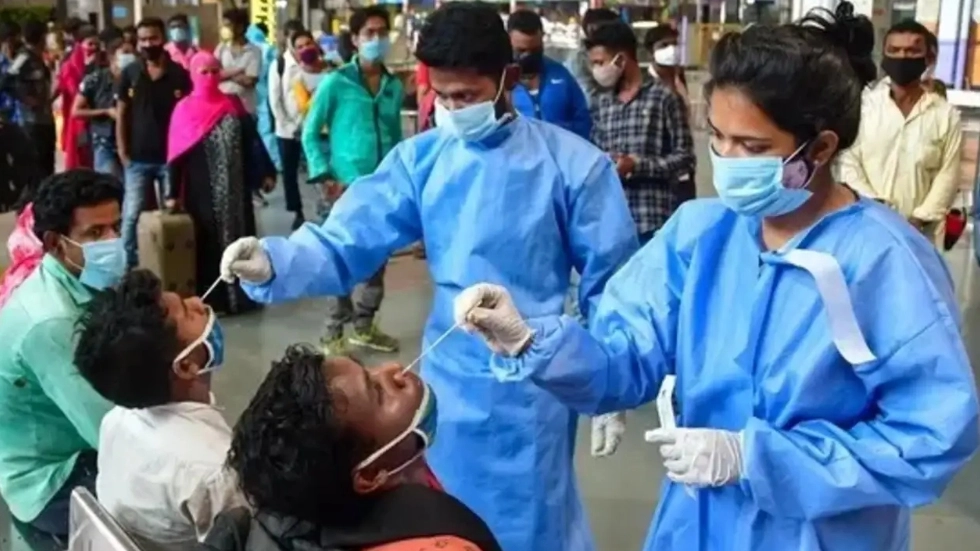India's Active COVID Cases Cross 4,000 Mark, Subvariants of Omicron Fuelling Surge, Say Officials

India's COVID-19 graph is on an upward trajectory, with 4,026 active COVID-19 cases in the country. Five more deaths were reported in the last 24 hours (as of 8 am, Tuesday), according to the
Ministry of Health and Family Welfare. The fatalities were recorded in Kerala, Maharashtra, Tamil Nadu, and West Bengal, all involving patients with underlying health conditions.
In Kerala, the worst-hit Indian state, an 80-year-old man with severe pneumonia and acute respiratory distress syndrome (ARDS), in addition to diabetes, hypertension, and coronary artery disease, was reported dead during the period. The southern state has 1,416 active cases at present.
Maharashtra recorded two deaths - a 70-year-old woman with diabetes and another 73-year-old woman with both diabetes and hypertension. With nearly 500 cases (494), the western state also ranks among the worst-affected in the country. Mumbai has reported 483 COVID-19 cases since January 1, and a bulk of them - 477 - were recorded in May alone, said the department.
A 69-year-old woman with Type 2 diabetes and Parkinson’s disease succumbed to the virus in Tamil Nadu. West Bengal reported the death of a 43-year-old woman who was suffering from acute coronary syndrome, septic shock, and acute kidney injury.
The latest wave is being attributed to four subvariants of
Omicron -- LF.7, XFG, JN.1 and NB.1.8.1
The severity of infections is low, with most of the patients under home care. There is no reason to worry, the sources said.
Director General, Indian Council of Medical Research, Dr Rajiv Behl, on Monday said that genome sequencing of samples in the west and south has shown that the variants fuelling the current rise in cases are not severe and are subvariants of Omicron.
LF.7, XFG, JN.1 have been found in a greater number of cases, he said.
"We have been closely monitoring the situation. At this moment, overall, we should monitor, be vigilant, but there is no cause to worry," Dr Behl said.
 India's COVID-19 graph is on an upward trajectory, with 4,026 active COVID-19 cases in the country. Five more deaths were reported in the last 24 hours (as of 8 am, Tuesday), according to the Ministry of Health and Family Welfare. The fatalities were recorded in Kerala, Maharashtra, Tamil Nadu, and West Bengal, all involving patients with underlying health conditions.
India's COVID-19 graph is on an upward trajectory, with 4,026 active COVID-19 cases in the country. Five more deaths were reported in the last 24 hours (as of 8 am, Tuesday), according to the Ministry of Health and Family Welfare. The fatalities were recorded in Kerala, Maharashtra, Tamil Nadu, and West Bengal, all involving patients with underlying health conditions.